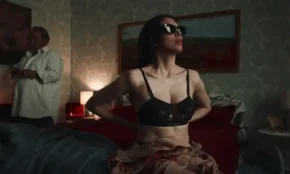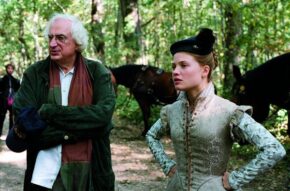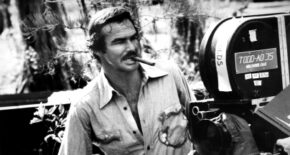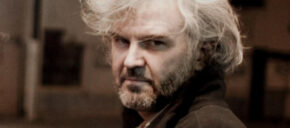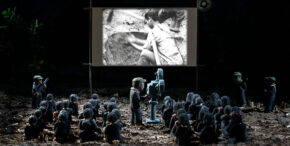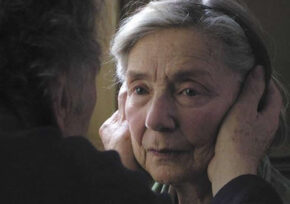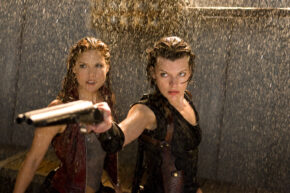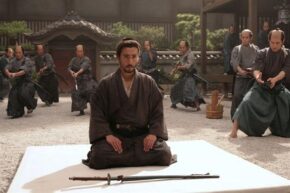Christoph Huber
Last of the Independents: A Roundtable on “Charley Varrick” with Veronika Franz and Severin Fiala
By Christoph Huber | 01/18/2024 | CS97, Features, From Cinema Scope Magazine
Don Siegel’s superior crime picture Charley Varrick (1973) was supposed to be called Last of the Independents, but that title was nixed by Universal honcho Lew Wasserman. This probably gives even more credence to the subversive, stick-it-to-the-system notion nestled inside this tale of a crop-duster pilot who has resorted to small-scale robbery for a living because he can no longer compete against the capitalist monopoly in his legal job.
Read More → Telling the Truth Can Be Dangerous Business: The Overdue Enshrinement of Elaine May
By Christoph Huber | 09/26/2022 | CS92, Features, From Cinema Scope Magazine, TV
It’s not as if Elaine May wasn’t a beloved figure in American popular culture for most of her life. Her successful pairing with Mike Nichols as an innovative improv comedy team in the late ’50s may have been short-lived—the duo broke up at the height of their success in 1961—but is regularly cited as one of the most influential and well-remembered comedy acts the US has ever known.
Read More → Endless Night: “Dark Glasses” and the Remnants of Dario Argento’s Mad Poetry of Terror
By Christoph Huber | 06/21/2022 | CS91, Features, From Cinema Scope Magazine
Everybody is staring into the sky, wearing special glasses or holding up black strips to protect their eyes. She stops at a park, joining a small group of people, putting on her sunglasses. Dogs bark as the light dims—they are awaiting a solar eclipse. “Not just dogs, every animal is afraid,” a man explains to his kid. “Even our ancestors, a long time ago, feared the eclipse.” His wife adds, “They thought the disappearance of the sun meant the end of the world.”
Read More → Higher Power: Paul Verhoeven’s Benedetta and the Legacy of Nunsploitation
By Christoph Huber | 01/04/2022 | CS89, Features, From Cinema Scope Magazine
The pear of anguish is a medieval torture instrument, whose spoon-like metal segments spread at the turn of a screw in its centre. Also known as the “choke pear” because it was often applied to the victim’s mouth, it could be inserted into any orifice.
Read More → Next Stop Eternity: Peter Tscherkassky’s Train Again and the Love Story of Railroads and Film
By Christoph Huber | 09/20/2021 | CS88, From Cinema Scope Magazine
Peter Tscherkassky’s 20-minute film Train Again unearths some new materialist marvels while expanding on those typically Tscherkasskian sensations the Austrian filmmaker achieves through the technique of contact printing, in which found footage is copied by hand, frame by frame, onto unexposed film stock.
Read More → TIFF 2021 | Train Again (Peter Tscherkassky, Austria)
By Christoph Huber | 09/10/2021 | Cinema Scope Online, TIFF 2021, TIFF Coverage & Reviews
By Christoph Huber Published in Cinema Scope #88 (Fall 2021) I Peter Tscherkassky’s 20-minute film Train Again unearths some new materialist marvels while expanding on those typically Tscherkasskian sensations the Austrian filmmaker achieves through the technique of contact printing, in which found footage is copied by hand, frame by frame, onto unexposed film stock. His…
Read More → Common Sense Connoisseur: The Critical Legacy of Bertrand Tavernier
By Christoph Huber | 06/15/2021 | CS87, Features, From Cinema Scope Magazine
The two most cherished film books in the pile on my bedside table are in a language my command of which is rudimentary at best. But since both Jacques Lourcelles’ Dictionnaire du Cinéma – Les Films as well as Jean-Pierre Coursodon and Bertrand Tavernier’s 50 ans de cinéma américain have never been translated from French into either English or German, I gladly make do, filling the gaps with a mixture of autodidactic guesswork and occasional dictionary consultation, which for all its drawbacks has proved to be a viable method.
Read More → The Man from Left Field: Burt Reynolds, Neglected Filmmaker
By Christoph Huber | 12/21/2018 | Columns, CS77, Deaths of Cinema, From Cinema Scope Magazine
By Christoph Huber “I should have been born a hundred years earlier when not having a style was a style.”—Burt Reynolds in Gator (1976) The passing of Burt Reynolds this September at age 82 from cardiac arrest drew a lot of attention, but once again relegated to a footnote what I consider his most remarkable…
Read More → Whatever Happened to Lizzie Borden?
By Christoph Huber | 03/16/2018 | CS74, From Cinema Scope Magazine, Interviews
By Christoph Huber “This fight will not end in terrorism and violence. It will not end in a nuclear holocaust. It begins in the celebration of the rites of alchemy. The transformation of shit into gold. The illumination of dark chaotic night into light. This is the time of sweet, sweet change for us all.”…
Read More → Weapon of Flesh: Shiota Akihiko’s Wet Woman in the Wind and the Return of Roman Porno
By Christoph Huber | 09/26/2016 | CS68, Features, From Cinema Scope Magazine, Interviews
By Christoph Huber It could have been another quiet day in the country, but it wasn’t meant to be: Shiota Akihiko’s Wet Woman in the Wind starts with an idyllic shot of a forest glade dappled with sunlight, the only hint at the absurd convolutions to come being a chair positioned incongruously at the edge…
Read More → Last Action Hero: Jason Statham Plays It Straight
By Christoph Huber | 03/21/2016 | CS66, Features, From Cinema Scope Magazine
By Christoph Huber “Jason makes everything better.”—Paul Feig, quoted in Esquire’s 2015 Statham cover story It’s difficult to think that we should be grateful to Guy Ritchie for anything, but I guess he deserves credit for casting Jason Statham in his debut, Lock, Stock and Two Smoking Barrels (1998). Statham has since gone on to…
Read More → TIFF 2014 | Goodnight Mommy (Veronika Franz & Severin Fiala, Austria) — Vanguard
By Christoph Huber | 09/07/2014 | Cinema Scope Online, TIFF 2014
By Christoph Huber Don’t be fooled by the inane Haneke comparisons lavished by lazy critics on the first fiction feature by Veronika Franz and Severin Fiala, who previously made the beautiful portrait-essay Kern and the underseen drinking-game short Dreh und Trink (full disclosure: they are also my best friends, but that’s not why I…
Read More → Deaths of Cinema | The World in His Arms: Michael Glawogger, 1959-2014
By Christoph Huber | 06/25/2014 | Columns, CS59, From Cinema Scope Magazine
By Christoph Huber “The theatre is not a classroom, so there is nothing to learn. But there is a lot to see,” Michael Glawogger quipped at the Flaherty seminar in 2010—just one of many choice aphorisms given (not just) on that occasion, demonstrating several of the unique gifts of this one-of-a-kind Austrian director. He not…
Read More → TIFF 2013 | The Missing Picture (Rithy Panh, Cambodia/France)
By Christoph Huber | 08/30/2013 | Cinema Scope Online, TIFF 2013
From Cinema Scope #55, Summer 2013 By Christoph Huber The eventual Un Certain Regard prizewinner, Panh’s The Missing Picture parts with the formal orthodoxy of his previous films on the subject like S-21: The Khmer Rouge Death Machine (2003) or Duch, Master of the Forges of Hell (2011), for the first time using both found…
Read More → Cannes 2013 | Genocide Party Day: Death March, The Missing Picture, The Last of the Unjust
By Christoph Huber | 06/24/2013 | CS55, Festivals, From Cinema Scope Magazine, Spotlight
By Christoph Huber Daily reporters at film festivals dread few demands from otherwise uninterested editors as much as “the festival’s overarching theme”: along with weather reports, these requests crop up with dispiriting regularity. As if a limited selection of movies (circumscribed by all kinds of necessities and strategic manoeuvers, at times more than artistic merit,…
Read More → Amour (Michael Haneke, France/Austria)
By Christoph Huber | 06/20/2012 | CS51, Festivals, From Cinema Scope Magazine, Spotlight
By Christoph Huber Besting Bille August by a year, it has taken Austrian director Michael Haneke only four to join what we cynical film critics like to call the Emir club: the allegedly prestigious circle of two-time Palme d’Or winners, hitherto occupied only by Kusturica (1985, 1995), August (1988, 1992), and the Dardennes (1999, 2005).…
Read More → Paul W.S. Anderson
By Christoph Huber | 04/04/2012 | 50 Best FIlmmakers Under 50, CS50, From Cinema Scope Magazine
By Christoph Huber Long mainstream-despised as a videogame hack—although his case has been adopted by a handful of highbrow critics—Brit-born Paul W.S. is the elder, least pretentious, and most consistently amusing Anderson of the current director trifecta: its termite artisan. With the homegrown Newcastle juvenile-delinquent story Shopping (1994), he delivered a stylish calling card and…
Read More → Cannes 2011 | Hara-Kiri: Death of a Samurai (Miike Takashi, Japan) and Guilty of Romance (Sono Sion, Japan)
By Christoph Huber | 06/28/2011 | CS47, Festivals, From Cinema Scope Magazine, Spotlight
By Christoph Huber Programmed in typical Cannes fashion as almost overlapping screenings, the double feature consisting of the press show of Miike Takashi’s competition entry Hara-Kiri: Death of a Samurai and the sole Quinzaine “special screening” of Sono Sion’s Guilty of Romance made for an instructive lesson in festival reception. On the most superficial level,…
Read More → Twelve Notes on Twelve: A Film by Joel Schumacher
By Christoph Huber | 01/07/2011 | Cinema Scope Online, Currency
By Christoph Huber 1) Twenty-five years ago, a film by Joel Schumacher about young, self-centred, superficial people was greeted by mostly dismissive reviews: it was called St. Elmo’s Fire. 2) This year, a film by Joel Schumacher about young, self-centred, superficial people was greeted by abysmal reviews: it was called Twelve.
Read More → Spotlight | In the Shadows (Thomas Arslan, Germany)
By Christoph Huber | 12/17/2010 | CS45, From Cinema Scope Magazine, Spotlight
By Christoph Huber “Soccer has to be generous with the viewer.” Thomas Arslan once quoted César Luis Menotti’s “harsh criticism of boring efficiency-football,” adding, “Actually also a fine dictum for filmmaking.” Arslan’s own work is a perfect example of that spirit, which may be one of the reasons he’s been somewhat neglected, especially internationally, even…
Read More → Currency | The Blacks (Goran Dević and Zvonimir Jurić, Croatia)
By Christoph Huber | 06/22/2010 | CS43, Currency, From Cinema Scope Magazine
While Edgar Allan Poe’s black cat cries its way out of a walled-in-tomb, the one quietly meowing while feeding its offspring at the beginning of Goran Dević and Zvonimir Jurić’s impressive war drama The Blacks (Crnci, 2009) remains in the centre of a trap. Quite literally—a typical offhanded reveal late in the film makes shockingly…
Read More → Features | Taking Time: Peter Schreiner Returns
By Christoph Huber | 03/17/2010 | CS42, Features, From Cinema Scope Magazine
By Christoph Huber “Making films,” says Peter Schreiner, “is a means of talking. Maybe even a substitute for talking. I’ve always had—and still do—a problem with the imprecision of language.” It is the summer of 2009, and we are sitting in the garden of his family’s inherited house in Grinzing, Vienna’s nice, green suburb famous…
Read More → The Decade in Review | Christoph Huber & Olaf Möller
By Christoph Huber | 03/16/2010 | The Decade In Review
Instead of yet another list of favorites, the Ferroni Brigade offers a dozen extraordinary films that have remained marginalized for different reasons; a little anthology of current film culture’s blind spots and an antidote for people who, like us, are lulled to sleep browsing the Times et al. polls. Notes from the Basement (2000). If…
Read More → Deaths of Cinema | The Vanishing In memoriam: Gerhard Benedikt Friedl
By Christoph Huber | 09/12/2009 | From Cinema Scope Magazine
By Christoph Huber “Did Wolff von Amerongen commit bankruptcy offences? Or didn’t he?” Gerhard (Benedikt) Friedl’s director’s note may seem somewhat evasive on the question that provides the (great) title of his only feature, Hat Wolff von Amerongen Konkursdelikte begangen? (2004), not to mention his description of the work itself, on which he concludes: “The…
Read More → Red Cliff (John Woo, China)
By Christoph Huber | 09/12/2009 | From Cinema Scope Magazine
By Christoph Huber Although arguably the major Asian film event of 2008/2009, John Woo’s colossal Chinese comeback—after a 16-year Hollywood hiatus—has yet to make a dent in the Western world. The reason for that is simple. The two-part costume actioner Red Cliff is based on one of the great classical novels of Chinese literature, Luo…
Read More → Features | Killing Time: The Economical Diversity of Johnnie To
By Christoph Huber | 09/04/2009 | From Cinema Scope Magazine
By Christoph Huber In the beginning was the hairy mole, and the hairy mole belongs to Lam Suet. For the last decade it has been one of the most hypnotic fixtures in the work of Johnnie To (Kei-Fung), and it never looked so hairy as in To’s frankly rather silly 2001 sequel Running Out of…
Read More → Cannes 2007 | Import Export (Ulrich Seidl, Austria)
By Christoph Huber | 09/03/2009 | From Cinema Scope Magazine
By Christoph Huber The motto of this year’s Competition might as well have been “running on empty” given the abundance of dubious exercises in style from patented postmodern pastiche (how could anybody take the Coens’ last-quarter bid for profundity seriously?) to straight-faced self-parody (Wong, Kim, etc.). So all the more ironic that it was Ulrich…
Read More → Features | Welcome to the Wasteland: Wakamatsu Koji’s Radical Resistance
By Christoph Huber | 09/01/2009 | From Cinema Scope Magazine
By Christoph Huber “It is something new that is always old; something old that is always new.”—Louis-Auguste Blanqui, Eternity Through the Stars (1872) Undeniably, there is some poetic justice to the fact that United Red Army, Wakamatsu Koji’s monumental chronicle of the excited emergence and devastating disintegration of Japan’s ultra-left movement, towered head and shoulders…
Read More → Spotlight | Gomorrah (Matteo Garrone, Italy)
By Christoph Huber | 09/01/2009 | Spotlight
By Christoph Huber Right from the buzzing, symptomatically absurd opening shots of Mafiosi getting tans in the confines of a solarium, Matteo Garrone’s Gomorrah grabs you with a strong sense of visual expressiveness and never ceases to let go: the film is nothing short of a pile-up of images powerful in both concrete and metaphorical…
Read More → Features | Time and the Hour: For the Melancholy Mastery of Jean-Claude Van Damme
By Christoph Huber | 08/31/2009 | From Cinema Scope Magazine
By Christoph Huber “I’m too old for this shit,” sighs a slightly disgruntled Jean-Claude Van Damme after the amazing and amusing one-take action scene launching JCVD, the remarkable contraption directed and co-written by sophomore French director Mabrouk El Mechri. This tragicomic meta-movie ingeniously weaves a dash of fact into tongue-in-cheek fiction, with surprisingly moving results.…
Read More → Features | The Man, The Myth, Mojica: Zé do Caixão’s Incredible Comeback
By Christoph Huber | 08/29/2009 | From Cinema Scope Magazine
By Christoph Huber Using excerpts of an interview conducted together with Vera Brozzoni, Markus Keuschnigg, and Olaf Möller. “With this film I seem to have been successful,” says a visibly satisfied José Mojica Marins a few days after the midnight premiere of his magnificent comeback film Encarnação do Demônio at the 2008 Venice film festival.…
Read More → 


